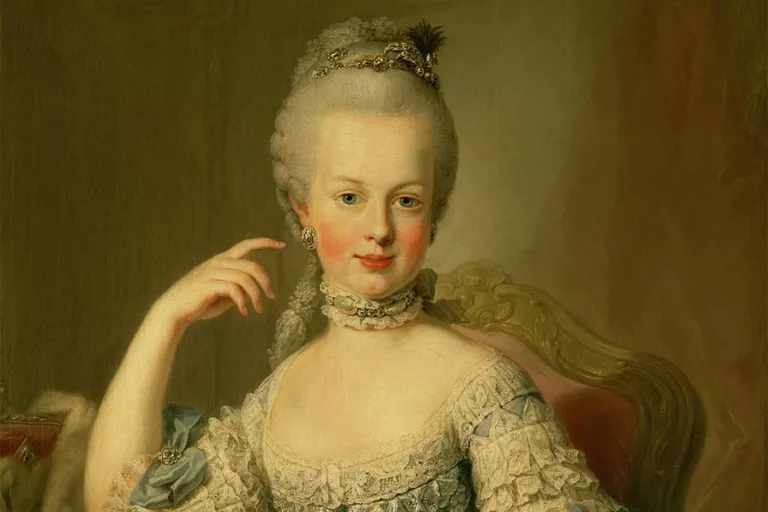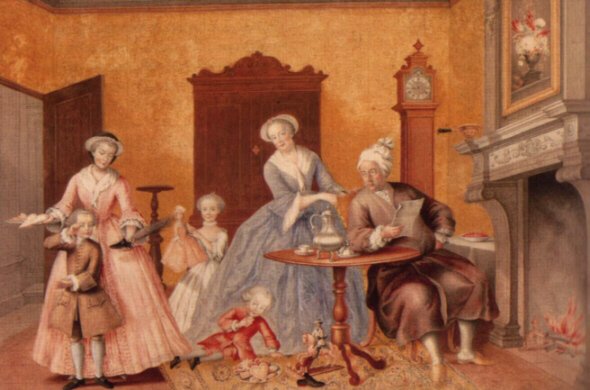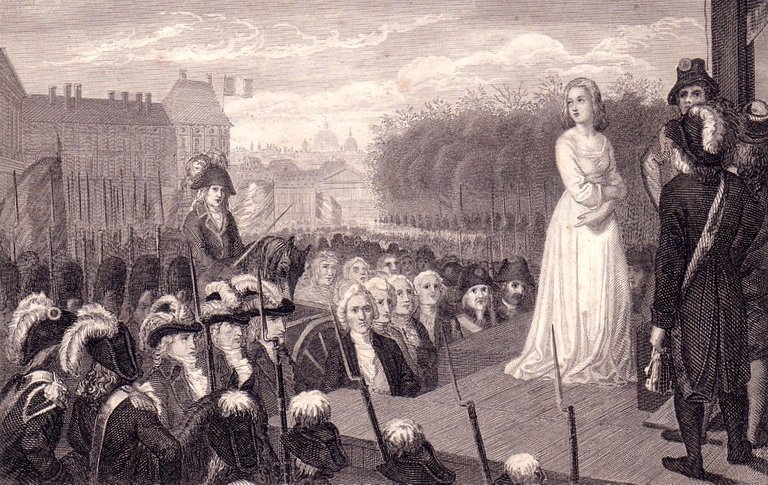
In the 200 years since her death, time has skewed her image and many still are unaware of the actual events that occurred in her life. In fairness however, even the common citizens at the time were misinformed of the queen's role leading up to the revolution. Given the information we know today, Marie was merely a scapegoat for all the ills of the country. A common evil for all to rally against in unity, and to successfully overthrow the monarchy.
Early Life
Born in Vienna, Maria Antonia lived a relaxed life with her family. Instead of the stringent formal education befit of an archduchess, she was mainly taught etiquette, court life, and proper appearance. At a very young age, her marriage was arranged to Louis XVI, grandson of Louis XV. At just 14, she was sent off to France where she would soon marry him, never to see her family again.

At Versailles
Although their marriage would fail to be consummated for another seven years, causing much disappointment throughout the country, life was pleasant for the most part. Many adored her, and she was noted for her beauty and grace by those in her presence. It wasn't always so easy, marked by some individuals calling her 'the Austrian woman' as they felt this foreigner would influence the future king in political matters. After all, a queen's duty is to provide a legitimate heir, nothing more. Following their coronation after the death of Louis XV, they cried out "Oh, God, guide us and protect us! We are too young to reign!"
Gossip wafted through the palace and intensified preexisting ill feelings of the young queen, which eventually permeated into the streets of Paris. Louis was disinterested in Marie, choosing instead to go hunting than performing his marital duties. This is not unusual given their ages, therefore we have to imagine the incredible pressure she must have felt as monarch by failing to provide a son.
Due to Marie's limited education, she was unprepared for French court life, and was thrust into a new world with little friends. Young, inexperienced, and craving some form of diversion, Marie developed extravagant tastes and hosted some of the largest parties in France. The timing could not have been worse however since at this point the country was beginning to feel the strain of debt following the American Revolution. Dubbed 'Madame Deficit' due to her spending habits, she became the symbol of all that was wrong with the monarchy and became the target of all the public's hatred. Several times Marie gave charitable donations to the poor and even once freeing some debtors from prison. All of this was viewed as extremely naïve since it failed to formally address the issues, choosing instead to temporarily fix them.
Execution

The Revolution is in full swing, the king is dead, as are many other aristocrats. Marie Antoinette is scheduled to meet the guillotine in October of 1793. On that morning, the priest noted the courage she held in front of the angry crowd, contradicting the image constructed by her enemies. She was only 37 upon her death yet lived such a turbulent life, it would seem she lived a thousand lifetimes. Upon reading her biography, I found myself angered by the false accusations thrown at her during her trial, simply because they wanted her head and no amount of truth would sway the public. I believe her life was quite tragic, given that she was only a teenager when she arrived, had no initial grasp of the rules within Versailles, and was immediately shunned for her Austrian roots. She certainly made short-sighted decisions the public would undoubtedly find inappropriate, however no amount of good would have changed the cemented public opinion. Marie was kind, affectionate, and loving; instead of being recognized as the hated queen, she should be remembered for all her remarkable qualities and the truth to her life.
Congratulations @vestabesta! You received a personal award!
You can view your badges on your Steem Board and compare to others on the Steem Ranking
Vote for @Steemitboard as a witness to get one more award and increased upvotes!